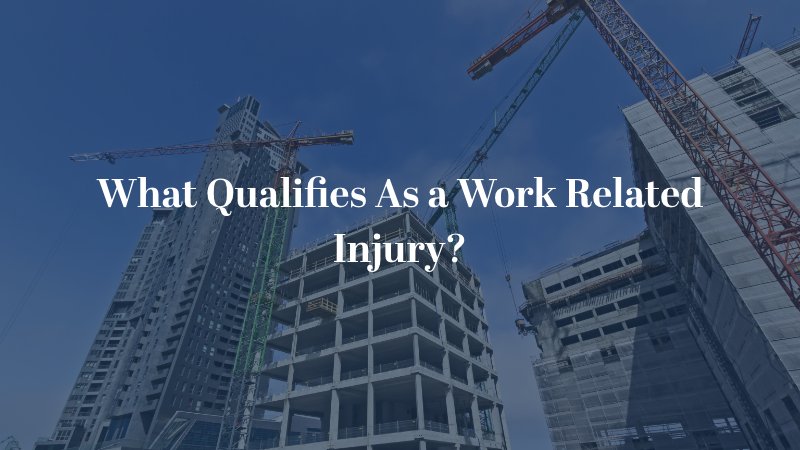
When an injury occurs in the course of your job duties or as a direct result of your work environment, it typically qualifies as a work-related injury. Understanding whether your situation constitutes a valid workers’ compensation claim is crucial, as this impacts whether you’re entitled to medical coverage, wage replacement, and other workers’ compensation benefits.
What Makes an Injury Work Related?
An injury is considered work-related when it happens while you’re performing tasks on behalf of your employer or during the course of employment. This can include injuries sustained within normal work hours or workspace, as well as those occurring in company-sponsored events, business trips, and even sometimes remote working environments if directly linked to your job duties.
Examples of Work-Related Injuries
Work-related injuries can occur in any profession, impacting employees’ health and their ability to perform their duties. Some of the most common examples include:
- Repetitive Strain Injuries (RSIs): These are caused by repetitive movements or overuse of certain body parts. Examples include carpal tunnel syndrome, tendonitis, and bursitis.
- Slips, Trips, and Falls: Slips on wet floors, trips over loose cables, or falls from ladders can lead to injuries such as fractures, bruises, or concussions.
- Back Injuries: These are often the result of heavy lifting, awkward postures, or anything that puts excessive strain on the back. Common back injuries include sprains, herniated discs, and chronic lower back pain.
- Occupational Illnesses: Exposure to harmful substances or environments can lead to illnesses such as respiratory conditions, skin diseases, or hearing loss.
- Mental Health Issues: Stressful work environments can contribute to or exacerbate mental health issues like depression, anxiety, and stress-related disorders.
- Vehicle Accidents: Employees who operate vehicles as part of their job may suffer injuries from accidents on the road. This includes not only collisions but also injuries from loading and unloading vehicles.
- Burns and Electrocutions: These injuries can occur in professions that involve working with electricity, chemicals, or fire, leading to severe and sometimes life-threatening conditions.
Each of these injury types can have a significant impact on an employee’s health and well-being, underscoring the importance of workplace safety and knowing what you may be entitled to as an injured worker.
Exclusions to Workers Compensation – What is Not Considered a Work Injury?
While workers’ compensation offers broad coverage for injuries and illnesses sustained in the workplace, there are specific exclusions that employees need to be aware of. Understanding what is not considered a work injury is essential for navigating the complexities of workers’ compensation claims. These exclusions generally include:
- Self-Inflicted Injuries: Injuries an employee inflicts on themselves intentionally are not covered under workers’ compensation. This can include injuries from fights the employee starts.
- Injuries Sustained While Committing a Crime: If an employee is injured while committing a crime, regardless of whether it occurred during their work hours or within the workplace premises, these injuries are not covered.
- Injuries Sustained While Not on Duty: Injuries that occur while the employee is not performing work-related duties or during their commute to and from work are typically not covered by workers’ compensation.
- Injuries Due to Drug or Alcohol Influence: If an injury occurs while an employee is under the influence of drugs or alcohol, workers’ compensation generally does not cover these incidents.
- Violations of Company Policy: Injuries sustained while an employee is violating company policies or engaging in activities expressly forbidden by their employer are not covered.
- Commuting to or From Work: Injuries sustained during an employee’s commute to and from work are generally not covered by workers’ compensation.
- Injuries From Horseplay or Practical Jokes: If an injury occurs due to horseplay or practical jokes between employees, it may not be covered under workers’ compensation as it is considered a deviation from regular job duties.
Understanding these exclusions is crucial for employees to ensure they understand when they may not be able to obtain these important benefits. If you have any questions, don’t hesitate to contact our Washington D.C. workers’ compensation attorneys to schedule a free consultation.